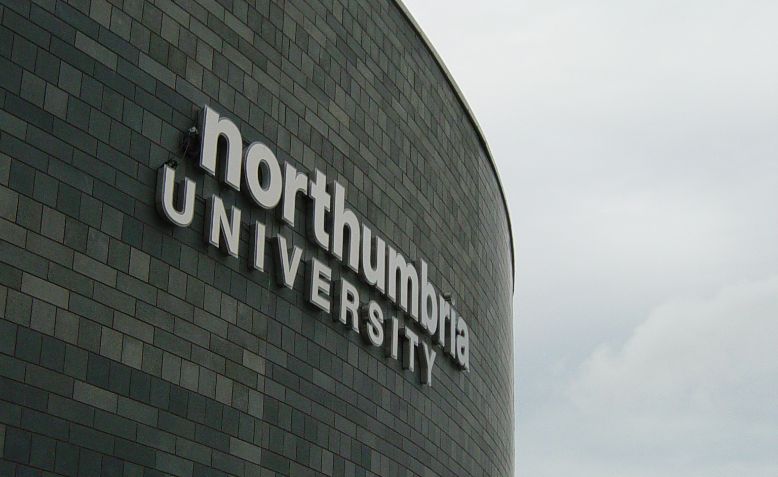 Northumbria University has over 1,500 infected students. Photo: Jisc InfoNet / Flickr / cropped from original / CC BY-NC-ND 2.0, license linked at bottom of article
Northumbria University has over 1,500 infected students. Photo: Jisc InfoNet / Flickr / cropped from original / CC BY-NC-ND 2.0, license linked at bottom of article
Staff and students at universities are taking on managements and the government amid sharply rising cases across campuses
Arbitrary league tables have become a blight in both education and health since market forces were unleashed in the UK in the 2000s. There is one league table however that no university would want to be top off, the Coronavirus infection table. On Sunday 18 October, Newcastle University sits shamefully on top with 1,770 infected students. Only a short walk away on the other side of the city centre, Northumbria University has 1,522 infected students and sits in fourth place. Fourteen miles to the south, the University of Durham is now also seeing increasing numbers of infections among students recording 958 cases this week, up from 219 the week before. Packed halls of residence are driving the infection rates.
It is no surprise then that a survey by the Chronicle newspaper in Newcastle found that out of 16,549 respondents, 82% thought that students should have stayed at home to study, 73% that universities should close to prevent further spread of the virus, 72% that universities should have done more to prevent the spread of the virus and 75% that the Government was wrong in allowing universities to reopen.
All this was avoidable. UCU the union for university lecturers, researchers and professional services staff has been warning for months that moving over a million students around the UK in the middle of a coronavirus pandemic was a recipe for disaster. Promises of face to face teaching have been used by University managements to lure students onto campuses which now sit virtually empty as online teaching becomes the only viable option. Trapped in halls of residence these students, many only 18 years old and away from home for the first time, are receiving an education they could easily have received at home. The fact that the UK government refused to bail out the higher education sector has driven a business first approach among university vice chancellors with fees and halls of residence rents taking priority.
Despite the National Union of Students coming out in support of UCUs position on face to face teaching, the position of the two local student unions in Newcastle has been weak. In a welcome and urgent initiative a group of Northumbria University students are organising in support of the joint UCU and NUS position and for adequate testing and for students to be able to return home safely.
Newcastle University recorded 11 staff members contracting Covid-19 in the last week, up from seven the week before. Last week at the largest ever UCU members meeting at Newcastle University, a motion recording a formal “failure to agree” with management over the handling of this crisis was passed. In particular members recorded a failure to agree over online working being the default at least until Xmas or until UCUs five tests are met; for management to stop pressuring professional services staff to return to campus; a failure to share data adequately with UCU health and safety representatives over cases of Covid on campus; a failure to carry out adequate risk assessments for either on campus or at home working; and a failure to allocate adequate time off to health and safety reps. A second motion enforcing a strict timetable on events moving to an industrial action ballot was also passed overwhelmingly.
Northumbria University UCU members are already moving towards an industrial action ballot following their largest meeting ever which also recorded a vote of no confidence in their University Executive and Vice Chancellor, and a call for him to resign.
Despite two long protracted disputes in the past three years, UCU members in higher education are again showing their willingness to take action. UCU meets for its national UK wide annual congress at the end of October. Congress needs to support branches fighting these attacks which affect not only the wellbeing of university staff but also students and the wider community. The national campaign needs to be sharpened and the full weight of the Union brought to bear on Universities UK, the employers organisation. And clear demands need to be put to the UK government for adequate funding for higher education to stop this business first madness which is now driving this pandemic in our university cities.
Before you go
Counterfire is growing faster than ever before
We need to raise £20,000 as we are having to expand operations. We are moving to a bigger, better central office, upping our print run and distribution, buying a new printer, new computers and employing more staff.

